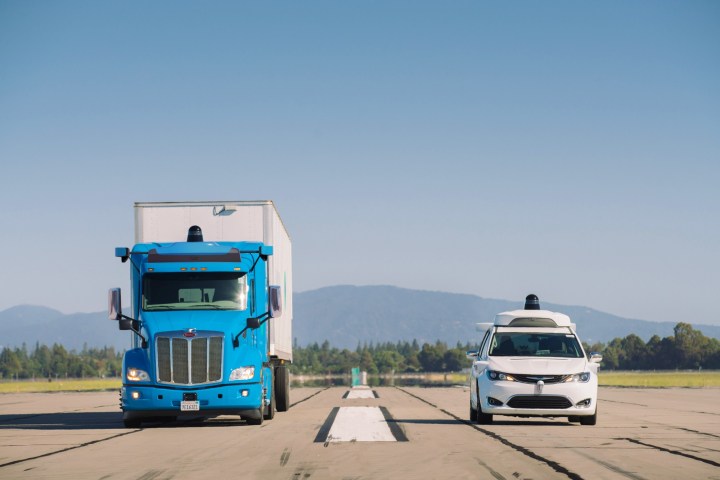
Waymo has already made significant strides in the self-driving car arena, and now, it’s frying bigger fish. On Friday, the self-driving unit of Alphabet announced that it would be launching a pilot program in Atlanta, where the company’s autonomous trucks will begin carrying freight intended for Google’s data centers.
Rumors around Waymo’s self-driving trucks first began swirling about last year, but the company has kept a relatively low profile on the enterprise. That is now changing with the launch of its new test program.
“Over the past year, we’ve been conducting road tests of Waymo’s self-driving trucks in California and Arizona,” the former Google project noted in a blog post. “Our software is learning to drive big rigs in much the same way a human driver would after years of driving passenger cars.”
And while you may think that you could simply superimpose self-driving car technology onto self-driving trucks, that’s not quite the case. As Waymo points out, while the principles are largely similar, key aspects like braking, turning, and blind spots are quite different for a fully-loaded truck with a trailer.
So why test in Georgia? Waymo certainly seems to have a penchant for choosing unexpected places to test its technology. After all, Phoenix, Arizona is home to Waymo’s (and the world’s) first fleet of fully autonomous vehicles. As for Atlanta, the innovative automaker says that it’s “one of the biggest logistics hubs in the country, making it a natural home for Google’s logistical operations and the perfect environment for our next phase of testing Waymo’s self-driving trucks.”
A number of other companies have also recently announced their own autonomous truck efforts. Uber, for example, announced progress on its self-driving project earlier in the week, and Embark has successfully trialed a cross-country trip of its own autonomous truck this year.
But Waymo certainly has a reputation for being the best at what it does in the self-driving space. “This pilot, in partnership with Google’s logistics team, will let us further develop our technology and integrate it into the operations of shippers and carriers, with their network of factories, distribution centers, ports and terminals,” the company concluded. “As our self-driving trucks hit the highways in the region, we’ll have highly-trained drivers in the cabs to monitor systems and take control if needed.”


